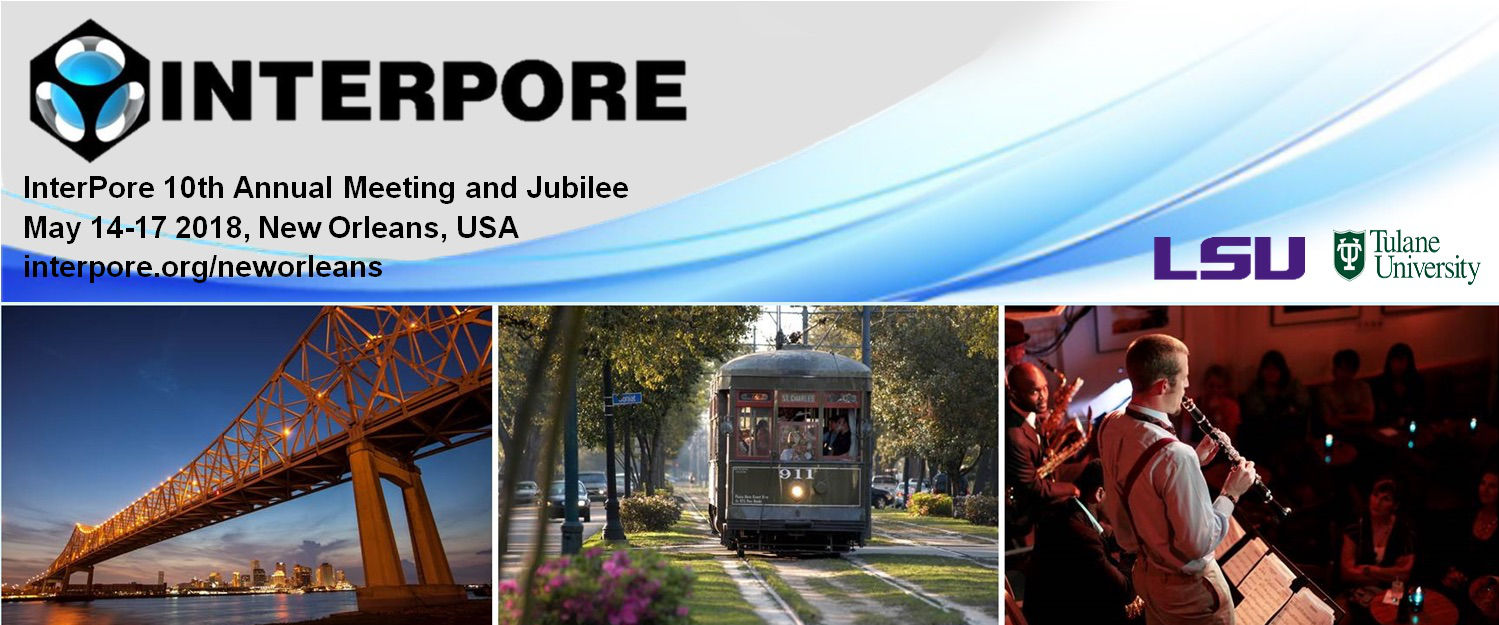Speaker
Description
Unconventional shale reservoirs with high organic content and swelling clays may have a high affinity for uptake of carbon dioxide (CO2). The pore space and mineral surfaces that sorb/contain petroleum are also potential sorption sites for CO2 and could become available for CO2 uptake once the reservoir is produced and depressurized. Understanding how shales interact with CO2 is important for enhanced resource recovery in the near term, and potential geologic carbon sequestration in the long term.
A series of experiments are discussed where fractured Bakken and Marcellus shale samples were exposed to CO2 at in-situ conditions for extended periods, a computed tomography scanner was used to visualize changes in structure, and simultaneously the fracture permeability was recorded. These measurements allowed for the correlation of hydro-mechanical changes in the fracture which are inferred to be a result of matrix swell and aperture closure.
A detailed examination studies in the literature to extend these results beyond two small samples is then presented. From the experimental CO2/shale interaction results and the growing body of literature on this topic several salient recommendations are presented to unify shale interaction study results into results that can be expanded beyond individual studies. This includes more rigorous characterization of sample constituents, maintaining micro-fabric of the samples, and enhanced control of initial shale water content.
References
- Moore, J. E.; Crandall, D.; Lopano, C. L.; Verba, C. A. Carbon Dioxide Induced Swelling of Unconventional Shale Rock and Effects on Permeability; NETL-TRS-9-2017; NETL Technical Report Series; U.S. Department of Energy, National Energy Technology Laboratory: Morgantown, WV, 2017; p 28.
- Lindner, E. Review of the Effects of CO2 on Very-Fine-Grained Sedimentary Rock/Shale – Part III: Shale Response to CO2; NETL-TRS-11-2017; NETL Technical Report Series; U.S. Department of Energy, National Energy Technology Laboratory: Morgantown, WV, 2017; p 228.
| Acceptance of Terms and Conditions | Click here to agree |
|---|


